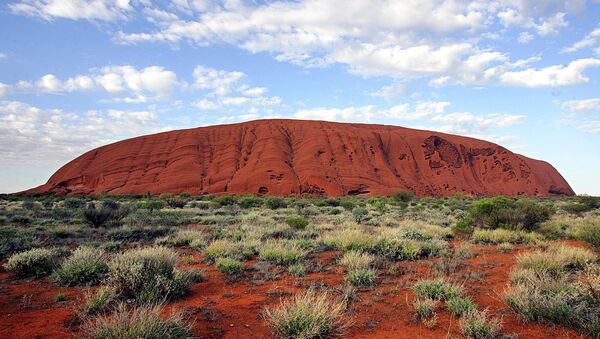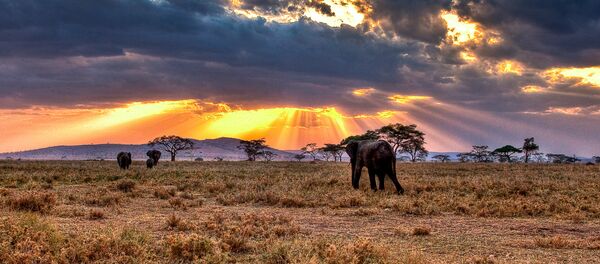"This decision has been a very long time coming and our thoughts are with the elders who have longed for this day but are no longer with us to celebrate it," David Ross, director of the Central Land Council, said in a statement.
Uluru, also known as Ayers Rock, is considered by Aboriginal Australians to be a sacred men's site that marks the traditional route ancestral Mala men took during the "creation time."
— Anthony Stewart (@anthonystewart) November 1, 2017
"Some people, in tourism and government for example, might have been saying we need to keep it open, but it's not their law that lies in this land," Sammy Wilson, a member of the council, said in a statement. "It is an extremely important place, not a playground or theme park like Disneyland."
The giant sandstone rock formation, listed as a UNESCO world heritage site, will be off limits to climbers from October 26, 2019, a day which also holds an immense amount of historical significance. It was on this day in 1985 that the Australian government returned ownership of the site to the Anangu people. However, as part of that agreement the Anangu community had to lease Uluru back to the government to ensure the public would still have access to the area, according to Australian Geographic.
Though signs at the base of Uluru do inform tourists to not make the climb, it has never been enough to deter some.
— Rohan Barwick (@rohwick) November 1, 2017
Since the announcement of the ban was made, travelers have cheered on the ruling on social media — some even showed remorse.
— Tom Gleeson (@nonstoptom) November 1, 2017
— rich (@RichmondMillier) November 1, 2017
— Adam Voigt 🐯🏆 (@adam_voigt) November 1, 2017
According to the council, roughly 16 percent of visitors made the climb between 2011 to 2015.



